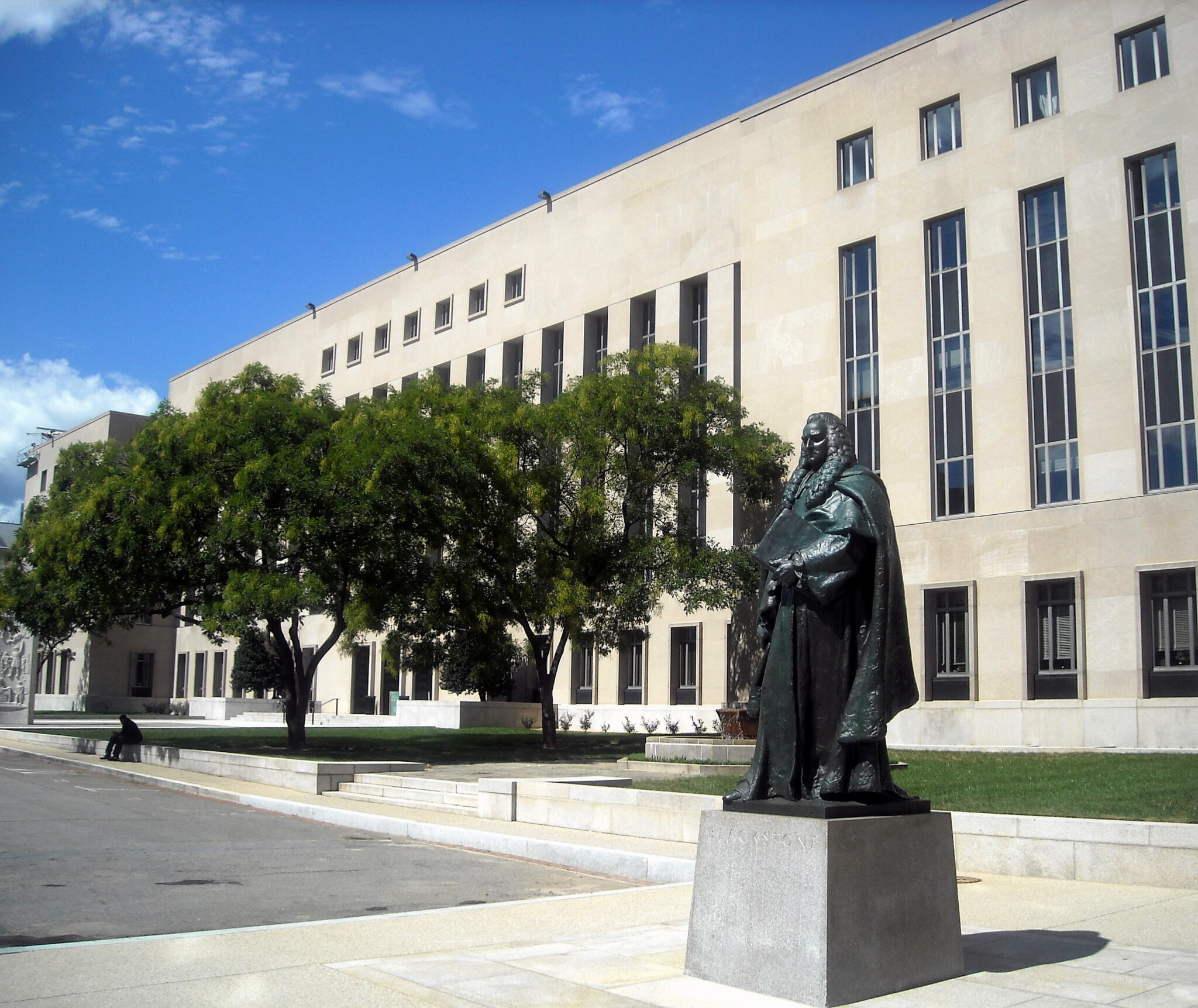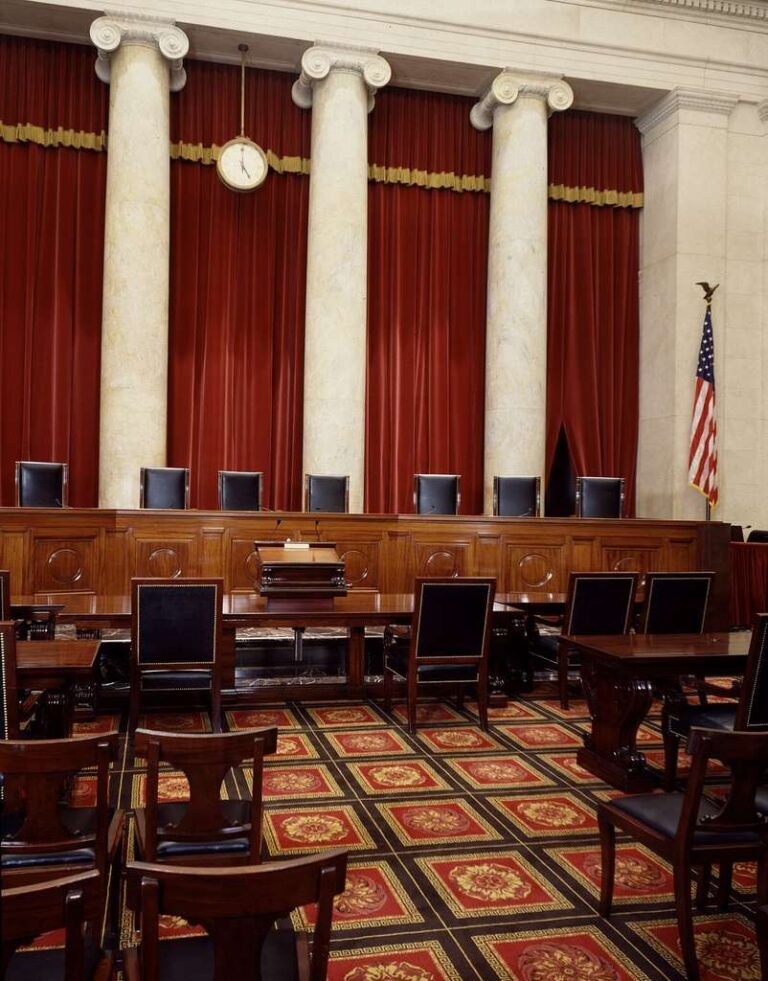
John Fry is a student at Harvard Law School.
After President Trump fired NLRB Member Gwynne Wilcox in January, the United States District Court for the District of Columbia ordered the administration to allow her to retake her seat. I covered the district court’s decision last month. However, after the administration appealed, a three-judge panel of the District of Columbia Circuit has stayed Wilcox’s return. The D.C. Circuit will hear full oral argument in the case on May 16th, likely before a different three-judge panel which will be announced later this month. Wilcox has also asked the D.C. Circuit for en banc reconsideration of the stay.
The panel voted 2-1 along partisan lines to keep Wilcox sidelined, with Republican appointees Justin Walker and Karen LeCraft Henderson each writing in concurrence to explain their decision and Democratic appointee Patricia Millett dissenting. Judge Walker acknowledged that the Supreme Court has not yet overruled its 1935 decision in Humphrey’s Executor, which upheld good-cause removal protections for the heads of the Federal Trade Commission, setting precedent for other independent agencies like the NLRB. But Walker argued that the Court in recent years has narrowed Humphrey’s to its facts, so that removal protections are now only valid “if the agency in question is the identical twin of the 1935 FTC,” which he concluded the NLRB is not. Because the NLRB enforces labor law, Walker wrote, it exercises too much “executive power” for Humphrey’s to apply.
Walker also argued that staying Wilcox’s return was necessary because reinstating her would thwart President Trump and “disenfranchise” those who voted for him. Walker reasoned that denying the NLRB a quorum—preventing it from deciding cases—would actually promote the public interest by ensuring that the agency does not act contrary to Trump’s “policy objectives.” And Walker wrote that hobbling the NLRB in this way would not unduly imperil the enforcement of labor law, because Trump can nominate new Members to once again reach a quorum.
Judge Henderson generally agreed with Walker that Humphrey’s did not cover the NLRB and wrote separately to emphasize the irreparable harm point. Henderson argued that because President Trump’s term is finite, forcing him to work with unwanted agency heads subjects the administration to irreparable harm. Henderson also decried the “headless Fourth Branch of government,” quoting the late Justice Antonin Scalia.
In her dissent, Judge Millett accused the majority of attempting to overrule the Supreme Court’s decision in Humphrey’s and described the NLRB as “predominantly an adjudicatory body,” with its enforcement (i.e. executive) powers vested in its General Counsel. Millett also argued that disabling federal agencies harms the public interest. She wrote that the majority’s decision would “trap in legal limbo millions of employees and employers whom the law says must go to these boards for the resolution of their employment disputes.” Finally, Millett warned that the logic of Judge Walker’s opinion, if taken seriously, would eliminate the independence of the Federal Reserve.
While the D.C. Circuit could reverse course when it fully considers Wilcox’s case later this spring, the Supreme Court is likely to have the final say. The future of agency independence at the NLRB and beyond may hang in the balance.










Daily News & Commentary
Start your day with our roundup of the latest labor developments. See all
February 27
The Ninth Circuit allows Trump to dismantle certain government unions based on national security concerns; and the DOL set to focus enforcement on firms with “outsized market power.”
February 26
Workplace AI regulations proposed in Michigan; en banc D.C. Circuit hears oral argument in CFPB case; white police officers sue Philadelphia over DEI policy.
February 25
OSHA workplace inspections significantly drop in 2025; the Court denies a petition for certiorari to review a Minnesota law banning mandatory anti-union meetings at work; and the Court declines two petitions to determine whether Air Force service members should receive backpay as a result of religious challenges to the now-revoked COVID-19 vaccine mandate.
February 24
In today’s news and commentary, the NLRB uses the Obama-era Browning-Ferris standard, a fired National Park ranger sues the Department of Interior and the National Park Service, the NLRB closes out Amazon’s labor dispute on Staten Island, and OIRA signals changes to the Biden-era independent contractor rule. The NLRB ruled that Browning-Ferris Industries jointly employed […]
February 23
In today’s news and commentary, the Trump administration proposes a rule limiting employment authorization for asylum seekers and Matt Bruenig introduces a new LLM tool analyzing employer rules under Stericycle. Law360 reports that the Trump administration proposed a rule on Friday that would change the employment authorization process for asylum seekers. Under the proposed rule, […]
February 22
A petition for certiorari in Bivens v. Zep, New York nurses end their historic six-week-strike, and Professor Block argues for just cause protections in New York City.